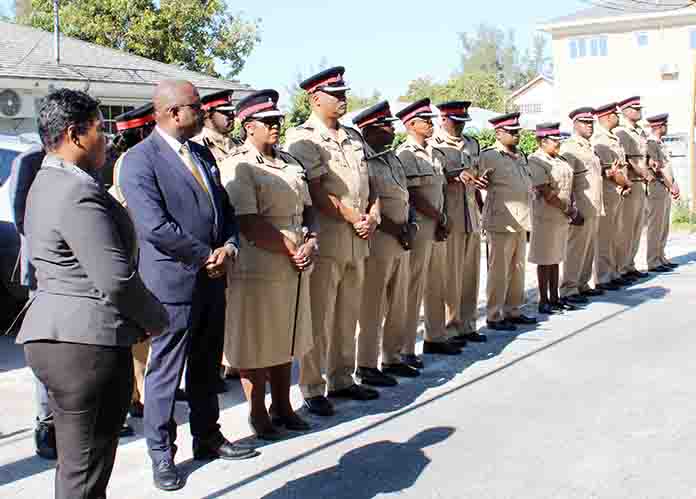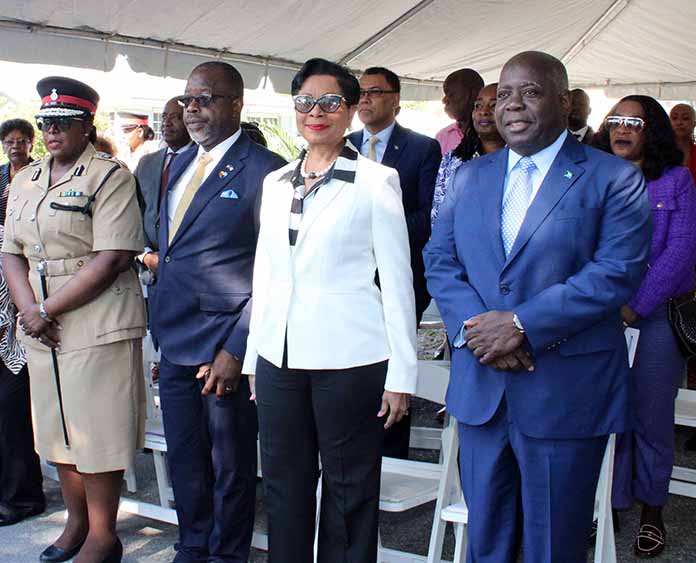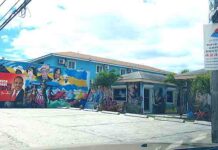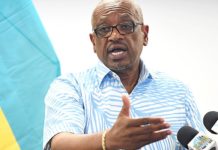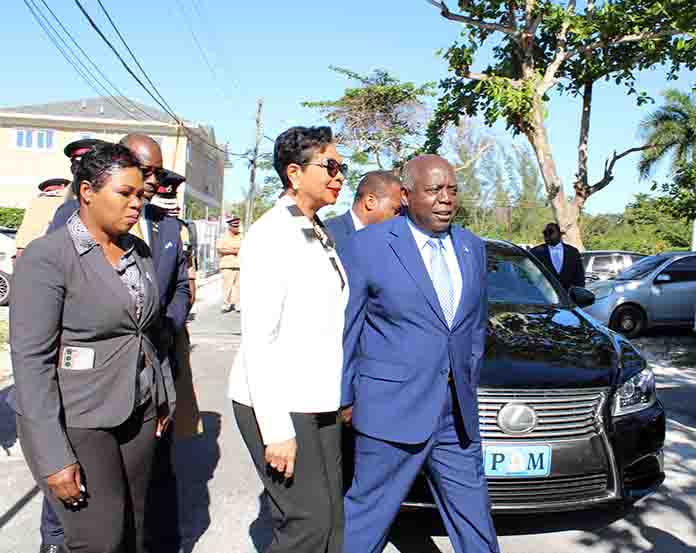
NASSAU, The Bahamas –Prime Minister the Hon. Philip Davis, as he officially opened the Royal Bahamas Police Force Domestic Violence Unit, declared that it is part of a broader strategy in the fight against such incidents.
He made the statement in his Keynote Address delivered during the Official Opening and Ribbon Cutting of the facility on Infant View Road, in the Chippingham area.
The unit is outfitted with office spaces for administrative and counseling services, living quarters, kitchen, and children’s playroom, among other amenities.
“This unit is part of a broader strategy. It links to legislative reform, to increased support for shelters and safe housing, and to education that helps us prevent violence before it starts,” said the prime minister.
Also participating in the ceremony were: Mrs. Ann Marie Davis, wife of the Prime Minister; the Hon. Wayne Munroe, Minister of National Security; Commissioner of Police, Shanta Knowles; Charge d’Affaires Kimberly Furnish, United States Embassy, Nassau; and Canon Stephen Davies, who performed the Blessing of the Building prior to the Unveiling of the Plaque. Partners in the initiative attended.
The prime minister spoke to the reality of domestic violence in the country.
The prime minister pointed out that domestic violence lives in the homes and in communities, and in quiet places where people feel afraid, alone and unsure they would get help.
“Today, we take a step forward—not a fix, not a finish line, but a real step—in saying to the people who are hurting: we’re here, and we’re doing something about it,” assured the prime minister.
In this vein, he noted that the Domestic Violence Unit of the Royal Bahamas Police Force is part of a commitment to respond differently. To do better, and to care more.
“This unit wasn’t created for statistics or for press releases. It was created for that woman who has packed and unpacked her bag a dozen times, trying to find the right moment to leave.
“It was created for the child who flinches at raised voices, because they’ve learned what comes next. It was created for the neighbour who’s heard the yelling through the wall and wondered whether to knock or stay quiet,” he said.
The prime minister however acknowledged that the government is not pretending the unit is the solution to everything.
“But we are saying that this is a country where your safety matters, your voice matters, and your pain will no longer be ignored,” he said. “This unit will be staffed by officers who have received specialist training—training not only in handling sensitive cases, but in how to respond with empathy, urgency, and care.”
He further explained that the officers would work hand-in-hand with social workers, shelters, and other partners such as The Bahamas Crisis Centre, so that survivors don’t have to repeat their stories, or feel like they’re navigating the system alone.
“And they will be held to a high standard—because the trust of survivors is something we must earn, and never take for granted,” the prime minister said.
He noted that the event was not about systems alone but about people.
“I’ve spoken to survivors. I’ve sat with women who’ve told me about the years they spent trying to smile through their pain—who stayed, not because they didn’t want to leave, but because they didn’t know if anyone would help them when they did,” he said. “And I’ve heard from officers—good officers—who said they wanted to help but weren’t always sure what steps to take, or whether the support system was in place for them to act.
“So we’re fixing that. Quietly. Carefully. Deliberately. Because we owe it to the people who trusted us once—and were let down—to make sure that never happens again.”
Speaking directly to those living with abuse, the prime minister assured them that they are not invisible, or alone. And, that there is help with the establishment of the unit facilitated with systems, and a team to make it easier and safer for them to reach out.
“To those who say nothing can really change—I understand the skepticism.
But let this Unit be a reminder: people are listening. The culture is shifting. And the institutions are catching up.
“To the officers who will staff this unit: you carry the hopes of many. You will meet people at their most vulnerable. You may be their first encounter with justice, or their last chance at hope. Treat them with care. Serve with pride. And know that you are doing something profoundly important,” the prime minister said.
He recognized his wife, whose advocacy sparked the flame for the unit, and the advocates and organizations “who’ve carried this burden for years—without recognition, without adequate funding, and often without sleep—thank you.”
The prime minister said this is about all, as he urged Bahamians to show up and make it known through words, systems, and culture that abuse has no home here.
“Let us be brave enough to talk about it, wise enough to prevent it, and strong enough to stop it. Because in the end, the mark of a good society is not how it treats the powerful—but how it protects the vulnerable,” the prime minister said. (BIS Photos/Patrice Johnson)
